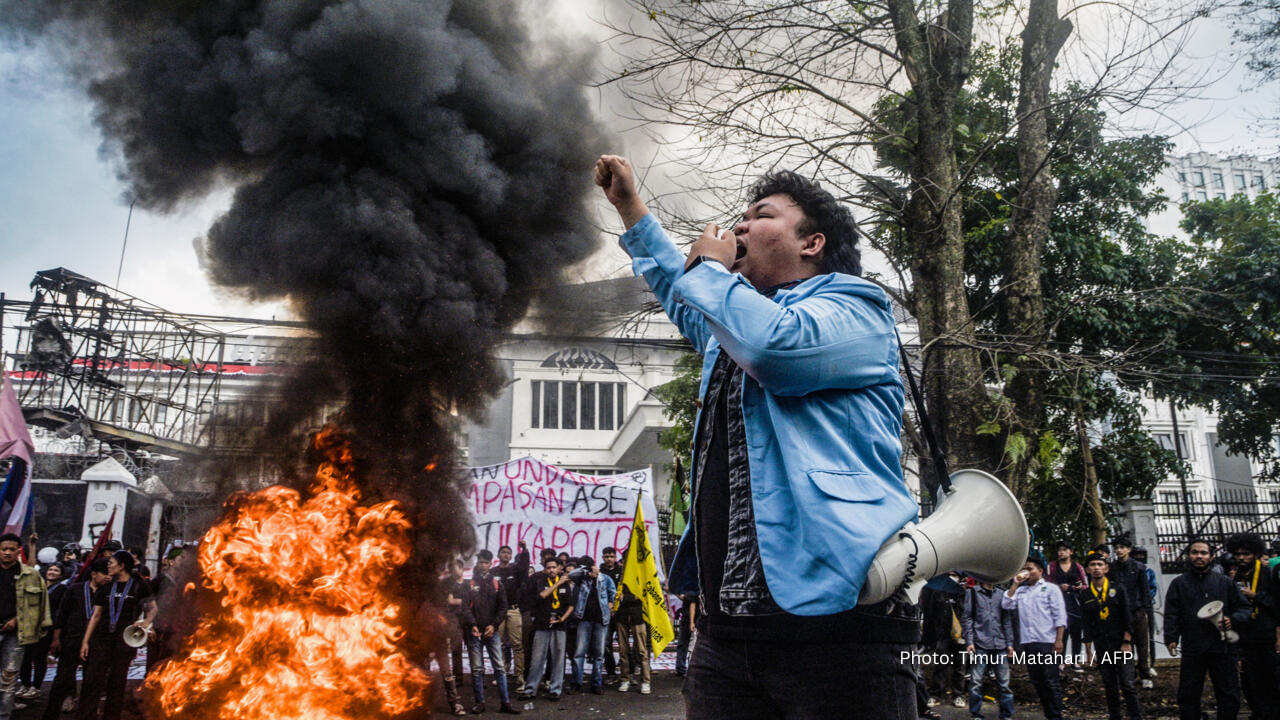Indonesia’s protest wave: Economic Frustration Turns Political
Debi Karmakar | 30 August 2025
The current wave of protests began on 25 August 2025 when students and citizens rallied outside Indonesia’s parliament in Jakarta after revelations that lawmakers receive a Rupiah 50 million monthly housing allowance, which is roughly ten times more than Jakarta’s minimum wage. The General Public’s anger over these benefits collided with a squeeze on living standards and austerity cuts to education, health, and public works. These turned a pocketbook issue into a broader indictment of elite privilege and governance.
Amid a movement, fueled by economic frustration and anger at political decisions. The Death of a food delivery driver,Affan Kurniawan, who was fatally run over by a police vehicle,escalated tensions in Jakarta. The death galvanized protests far beyond the capital and raised demands for police accountability. Authorities said officers tied to the incident are under investigation.
Student-led demonstrations, co-joined by gig workers and civil society groups, spread across Java, Sumatra, Sulawesi, Kalimantan, and beyond. While many marches remained peaceful, some turned violent. Regional government buildings and police posts were torched, and the homes of several politicians, including the finance minister,were looted. Reported casualties put the death toll at least 7–10, with hundreds injured and thousands detained.People are calling for independent investigations into the use of force.
President Prabowo Subianto, in his young presidency, has been facing the most serious crisis. He tried a dual track: concessions and crackdown. On the one hand, he moved to curb lawmakers’ amenities (including the housing allowance and overseas trips) and promised a transparent investigation into Kurniawan’s death. On the other hand, he ordered firm security measures against arson and looting, with expanded deployments of police and military personnel.
President Prabowo Subiantoexecuted a major cabinet reshuffle, firing five ministers, including globally respected Finance Minister Sri MulyaniIndrawati and the security chief. Sri Mulyani is known as the Fiscal Hawk due to his strict economic policy on government spending. Her removal from the cabinet injected fear among investors as the government might now start spending more on social programs and security. As a visible result, amid the political unrest, the rupiah fell and the stock market dropped. Purbaya Yudhi Sadewa was named the new finance minister. He pledged stability and growth.
At its core, the unrest reflects a disparity between people’s everyday sacrifices and elite insulation. Protesters complained about inflation pressures, tight household budgets, and the sense that political and military elites are shielded from the economic halter. Student groups and workers frame their demands around economic fairness, civilian control of security forces, and accountability for abuses. This is no longer just about a housing allowance; it’s about fairness, accountability, and whether public sacrifice is shared by those in power.
The forthcoming scenario of the protests will hinge between Security posture vs. dialogue. Between crowd control and credible dialogue, Prabowo will shape whether tensions will ease or harden.The United Nations and Human Rights Watch have urged restraint and accountability. They warned against treating protesters as “traitors” or “terrorists.” Indonesian police have said multiple officers linked to the fatal vehicle incident are facing disciplinary and criminal review. Investors are closely watching the market conditions and whether the new Finance team will be able to keepa balance between deficit and public spending.
Debi Karmakar is a Research Associate at Centre for Governance Studies (CGS)
Disclaimer: Views in this article are author’s own and do not necessarily reflect CGS policy
